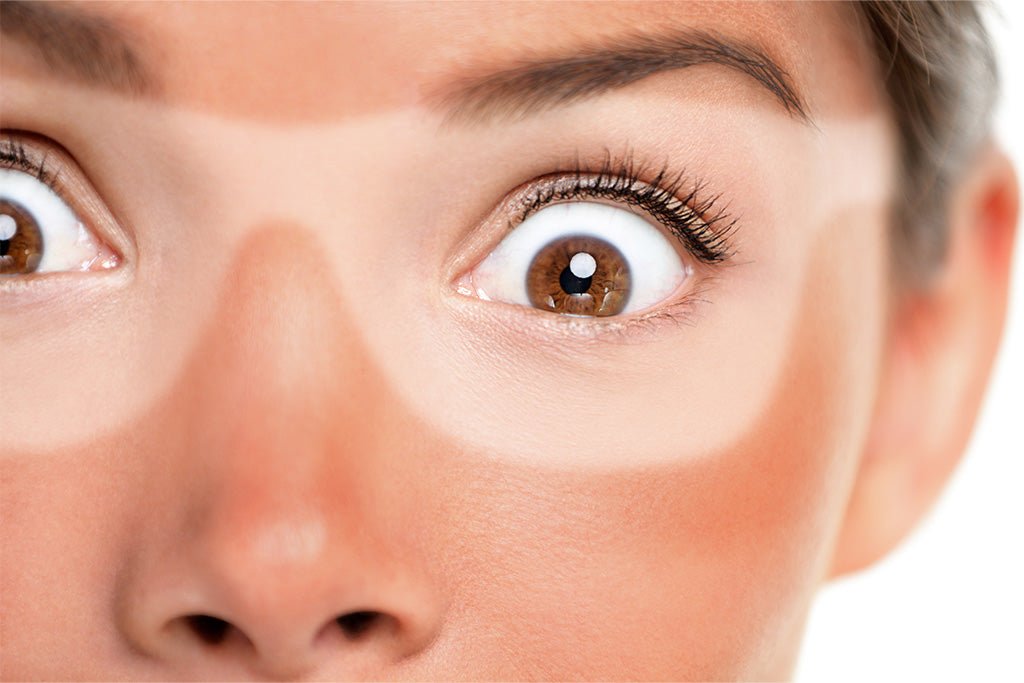In This Article
Introduction
The warm embrace of the sun can be delightful, providing us with a sense of happiness and vitality. However, prolonged exposure to the sun's harmful ultraviolet (UV) rays can wreak havoc on our skin, leading to sun damage. From sunburns and premature ageing to an increased risk of skin cancer, the consequences of sun damage are not to be taken lightly. Let’s explore the science behind sun damage, its effects on the skin, and most importantly, how to protect our skin from the sun and its harmful effects.
Understanding Sun Damage
The sun emits two types of harmful UV rays that can damage our skin: UVA and UVB. UVA rays have a longer wavelength and can penetrate deeper into the skin, causing premature ageing and contributing to the development of wrinkles and age spots. On the other hand, UVB rays have a shorter wavelength and primarily affect the outer layer of the skin, leading to sunburns and an increased risk of skin cancer.
Effects of Sun Damage on the Skin

Sunburn: Prolonged exposure to UVB rays can cause sunburns, resulting in red, painful, and inflamed skin. Repeated sunburns or harsh exposure for long durations can exacerbate ageing of the skin and significantly increase the risk of skin cancer.
Premature Ageing: UVA rays are responsible for premature ageing signs, including fine lines, wrinkles, and hyperpigmentation. Collagen and elastin, essential proteins that maintain skin elasticity, break down under the influence of UVA rays, leading to sagging skin and a loss of firmness.
Age Spots: Also known as solar lentigines or liver spots, age spots are flat, brown, or black spots that develop on areas of the skin exposed to the sun. They are caused by an accumulation of melanin, the skin's pigment, due to repeated sun exposure.
Skin Cancer: Sun damage is a significant contributor to the development of skin cancer, including melanoma, basal cell carcinoma, and squamous cell carcinoma. The risk of skin cancer increases with each instance of sunburn and excessive exposure to UV radiation.
Prevention is Key

Fortunately, skin protection from sun damage is within our control. By adopting a few simple practices into our routine we can be smart about sun protection and we can enjoy the outdoors while minimising the risks to our skin.
Wear Sunscreen: Applying sun skin cream with at least SPF 30 is crucial for safeguarding your skin from UV radiation. Always use a broad-spectrum sunscreen that offers protection against both UVA and UVB rays. Pro tip: Be sure to reapply sunscreen every two hours, especially after swimming or sweating.
Seek Shade: Restrict your time in direct sunlight, especially during peak hours when the sun's rays are strongest (typically between 10:00 am and 4:00 pm). Seek shade under trees, carry umbrellas, or wear protective clothing if you must be outside during these hours.
Cover Up: Wearing protective clothing, such as long-sleeved shirts, wide-brimmed hats, and sunglasses, can shield your skin and eyes from harmful UV rays.
Avoid Tanning Beds: Artificial tanning devices emit UV radiation, which can be as harmful as natural sunlight. Avoid using tanning beds to reduce your risk of sun damage and skin cancer.
Check Your Skin Regularly: Perform regular self-examinations to check for any changes in moles, spots, or skin growths. If you notice any unusual occurrences on your skin, consult your dermatologist promptly.
Stay Hydrated: Keeping your skin hydrated can enhance its natural protective barrier and promote skin repair. Drink plenty of water, and use moisturisers to lock in hydration.
Use SkinQ’s Sun Protect Ultra Light Non-Sticky Sunscreen Gel. Ultra-light, non-sticky and a broad-spectrum sunscreen gel that has SPF 40 sun protection and contains Vitamin C! The Vitamin C works on brightening your skin and the SPF prevents both UVA and UVB damage making it best choice among sunscreens for your face and neck. This sunscreen has been voted Top 5 Sunscreens of India by Vogue Beauty!
Conclusion
While the sun offers numerous benefits to our well-being, it is essential to approach it with caution to avoid sun damage. The effects of prolonged sun exposure on the skin can be severe, ranging from painful sunburns to an increased risk of skin cancer. However, by taking proactive measures such as wearing sunscreen, seeking shade, and covering up, we can enjoy the outdoors safely and maintain healthy, radiant skin. Protecting your skin from sun damage is an investment in your long-term health and beauty. Remember, prevention is key, so make sun protection a priority in your daily routine!

